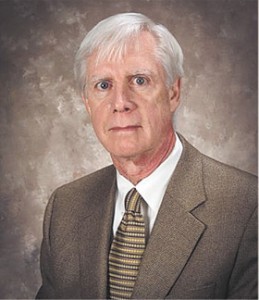
According to an article in the September 28, 2015 Wall Street Journal, 70% of people die in hospitals, nursing homes and long term care facilities, even though, if given a choice, they would have preferred to spend their last hours at home in familiar surroundings with family and other loved ones. In order to achieve that result, it is important that “end of life” planning and discussions begin long before a terminal illness or event is diagnosed. The article continues with the notation that only 27% of us will have the end of life conversation either because of fear or thinking that there will be time for the talk sometime later. My suggestion is to start this conversation sooner than later. To us old folks, it means that it is time to schedule a family meeting specifically for this purpose; for the kids, if we don’t start the process, perhaps you should—even in the face of adversity. Just to be open with this audience, my wife and I have danced around this discussion for years, verbally expressing to our children our wishes, but nothing in writing except a will. Time for the cobbler to fix his shoes.
The Wall Street Journal article was directed at encouraging doctors to take the lead in starting these discussions. I think it is more important for the family to begin the process. Also, the time to start planning is before any problems arise, before a terminal illness is discovered. Determining what values, preferences and priorities are important will be easier before a crisis. Once determined, they should be revisited periodically and updated, since circumstances and beliefs can change as we get older. Even though I think the family should be the catalyst in these plans, having a doctor on board to explain medical options, risks and benefits will also be important to a successful result. For example, doctors can ask families what they want and do not want medical teams to do or not do when death is imminent, as well as what these decisions mean. Included in these discussions of terminal care will be attempts to uncover what the patient-to-be values from not only a religious standpoint, but also quality of life vs. longevity issues. Finally, in a “do as I say, not do as I have done” comment, reduce these thoughts to writing and store the document where it can be found.
A lovely hymn, written by someone very talented and very close to me (my wife), fits very well with this discussion. Please indulge my prejudice and enjoy these words: “O King enthroned on high, thou comforter divine, blest spirit of all truth, be nigh and make us ever thine. Thou art the source of life, thou art our treasure store; give us thy peace and end our strife for evermore, for evermore. O spirit, who dost bind our hearts in unity, who teaches us to find the love and set our spirits free, here now the table laid, here the banquet is set. And here the hungry heart is fed, the spirit led, the Christ is met. Descend o heavenly dove. Abide with us always; and in thy fullness of thy love, come from above and cleanse us we pray.” From Psalm 19, “Let the words of my mouth and the meditation of my heart be acceptable in your sight, O Lord, my strength and my redeemer.”
Although this information has been gathered from sources believed to be reliable, it cannot be guaranteed. This material is intended for informational purposes only and should not be construed or acted upon as individualized tax, legal or investment advice. FSC Securities Corporation does not offer tax or legal advice. The views expressed are not necessarily the opinion of FSC Securities Corporation. Financial Solutions Group is a marketing name. Financial Solutions Group is located at 128 Versailles Blvd, Alexandria, LA 71301. We can be reached at (318)448-3201. Securities, insurance and advisory services offered through FSC Securities Corporation, member FINRA/SIPC.









